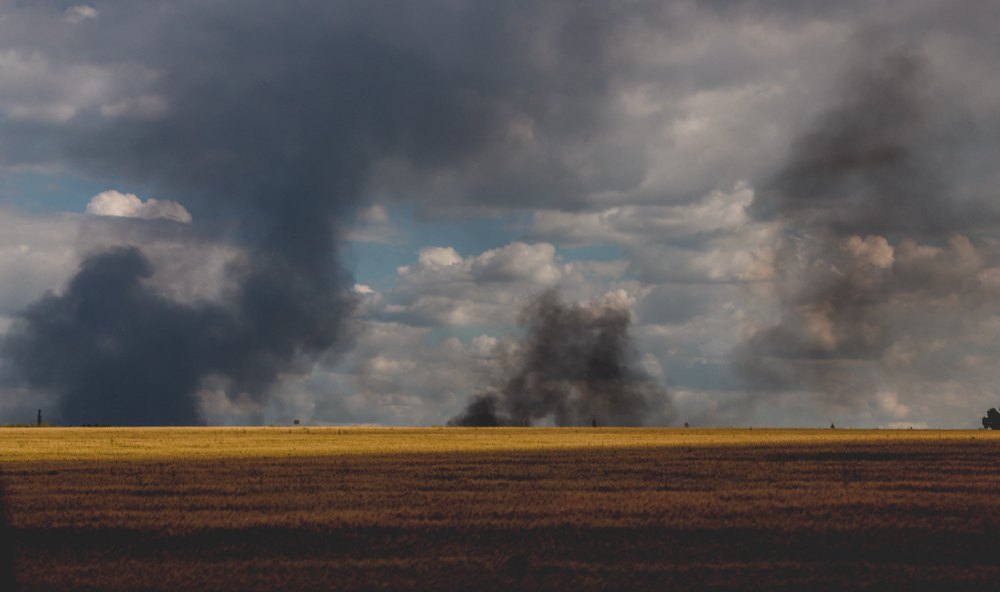
Honor and gratitude
"During all the time we know her, since May 2022 till today, she never refused to go on a mission, and spent three months on the frontline without rotation. I’ve been impressed with her ability to multitask, she’s like a perfect multi-purpose tool. If needed, she can shoot a rifle, or pilot a drone. We had real combat situations when she guided small units with a drone. In the most dangerous moments, when we were repelling the assaults of large enemy forces, she was the one who motivated the adjacent units to keep fighting. Without knowledge of Ukrainian language, she was able to deliver the message by gestures: "Stand up and fight!" And it worked. She always understands from half a word, or even without words, what to do. When I hear the callsign "Kiwi", I feel deep gratitude. And it is an honor for me to serve in the same unit with her." – "Santa", the commander of the 2nd International Legion for the Defense of Ukraine.
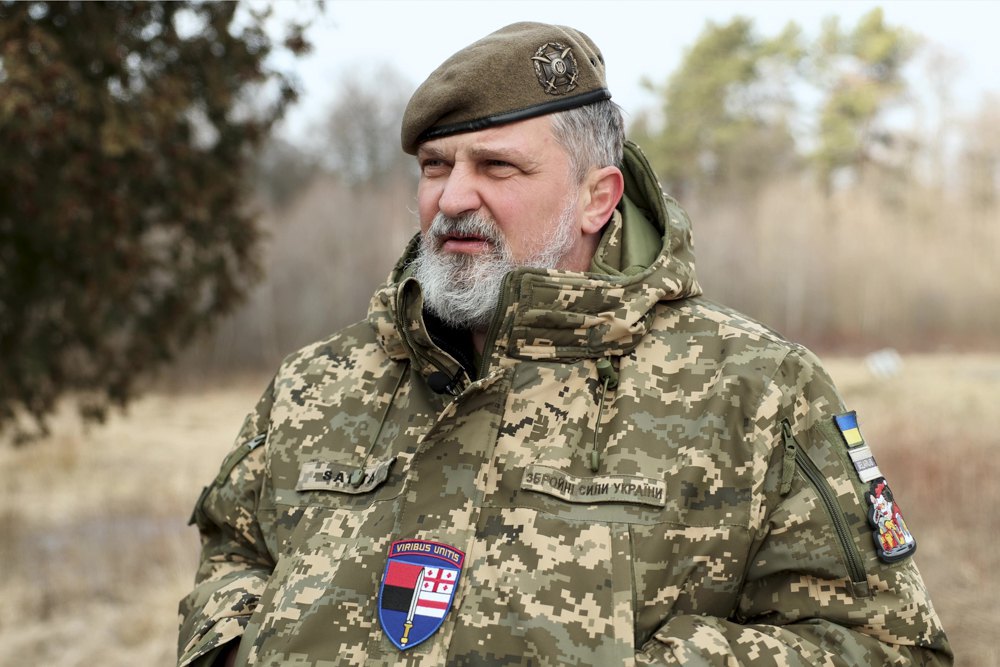
The Legion's legend
"It's hard to find a more heroic soldier. She saved many lives. And she handles her rifle maybe even more eagerly than her syringes and needles. She is more than a hero; she is a true legend within the International Legion. A legend of this war. Once, guys from a neighboring unit were hit with some heavy weaponry, and we evacuated them from the rubble. There were dead and wounded people among them. One wounded guy had his leg trapped between a concrete slab and a log. Neglecting her personal safety, she continued doing her job, while mortar rounds landed closer and closer. She agreed to take cover only after Viking and myself told her that we are not going anywhere without her. We waited a while, and then we managed to pull the wounded man out. When he was being loaded on a pickup truck, she ran to us and said "He cannot be transported like that. I need to fix his foot, or otherwise he is going to lose the leg". So, she hopped in the truck and went all the way with him, with high chances of getting hit by the enemy fire. Only after completing all necessary procedures, she jumped off the truck when it slowed down, and returned back to the unit’s position". – "India", the deputy commander of the 2nd International Legion for the Defense of Ukraine.
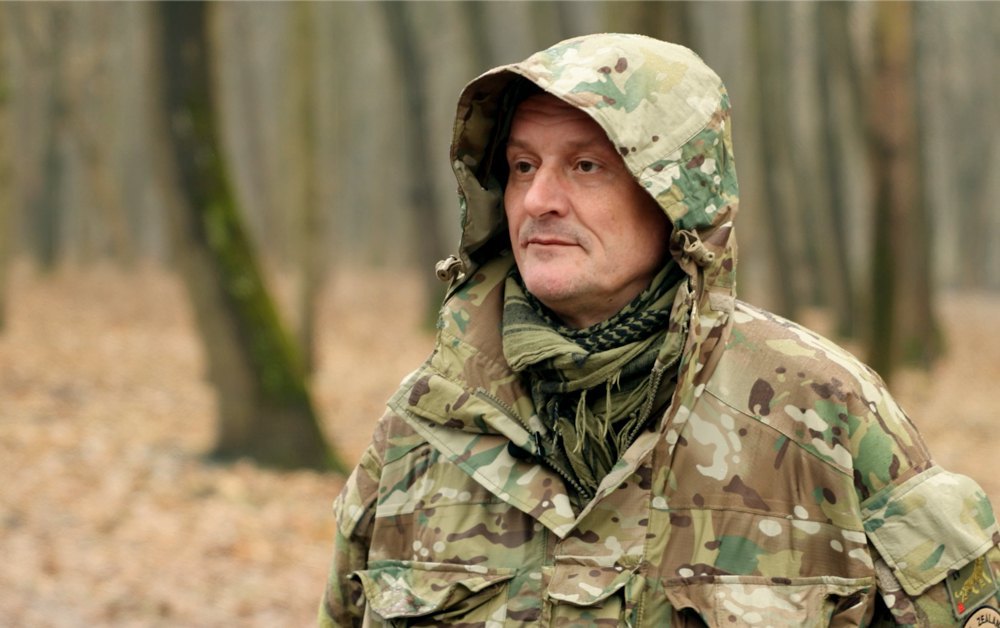
"I feel like I’ve known her all my life"
"Not everyone can even imagine the things she does. I never call anyone a hero, but if it wasn’t for her, at least ten good people wouldn’t be alive. Pulling people out of the rubble under mortar fire… Evacuating wounded soldiers with a driver who does not speak English, takes a wrong turn, and instead of driving to the hospital, approaches the enemy positions… When the disoriented driver realized what was going on and told the team: "The orcs [Russian soldiers – Ed.] are over there", Kiwi instantly crossed the language barrier and, adding a bit of harsh vocabulary used by soldiers all around the globe, helped him to deal with the shocking news: "Grab your rifle and shoot in that direction!" Luckily, they managed to get the wounded to the hospital. She is from New Zealand, but for us she is no longer a foreigner. A very strong and very kind person. I feel like I've known her all my life." – "Mukha", a serviceman in the 2nd International Legion for the Defense of Ukraine.
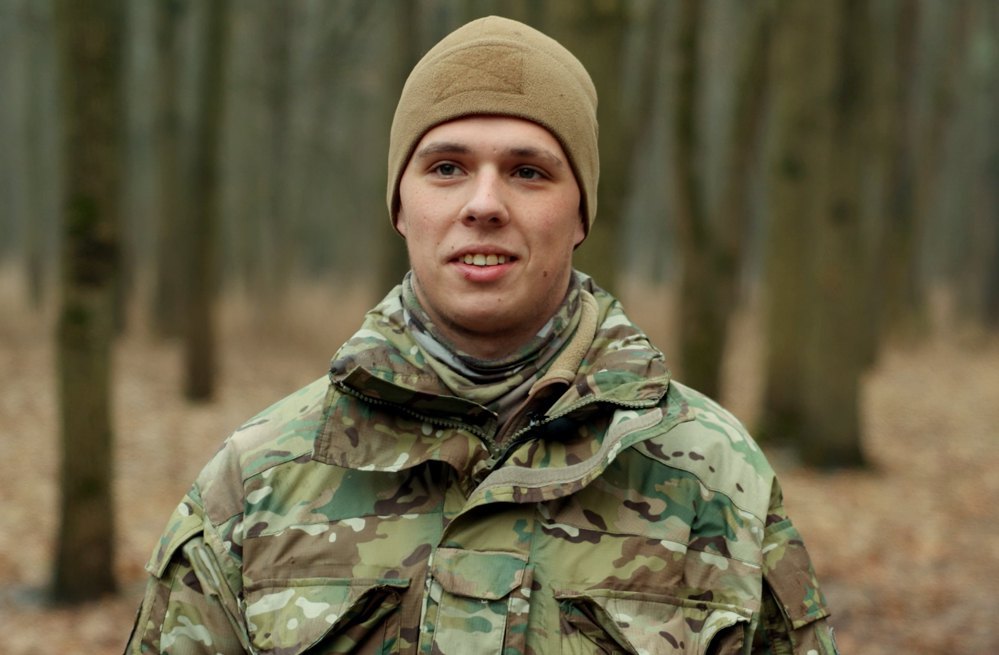
Face to face with the legend. Direct speech
How can we call you?
My name is Kiwi.
What brought you to Ukraine, and why did you decide to go to war?
It's a hard question to answer, because an important thing to me at this stage, so many months in, is not why I came, but what keeps me here, like the team and the guys I work with. But what drove me to come here? I originally came to help as a civilian doctor, to do whatever I could. To help Ukraine, obviously. Almost all of the rest of the world sees this illegal invasion by Russia. I put myself in a position of an average Ukrainian, thinking what would happen if my country was invaded tomorrow by somebody. So, I just came over to help in any way I could.
What impressed you the most from what you've seen here in Ukraine?
The people and the food! They are great! All the guys I served with, and all the civilians I've met have been just straight up good people, really welcoming, really enjoyable to spend time with. It's very similar to New Zealand in a lot of ways. People really appreciate the agricultural sector, the producers, and the land, this is the breadbasket of the world. This feels very familiar to me from New Zealand. People just want to have a good time with their friends and their family. They are resourceful people as well. As we've seen on some of the Youtube videos with tractors pulling tanks. Ukrainians are very resourceful people. It feels very familiar to a Kiwi.
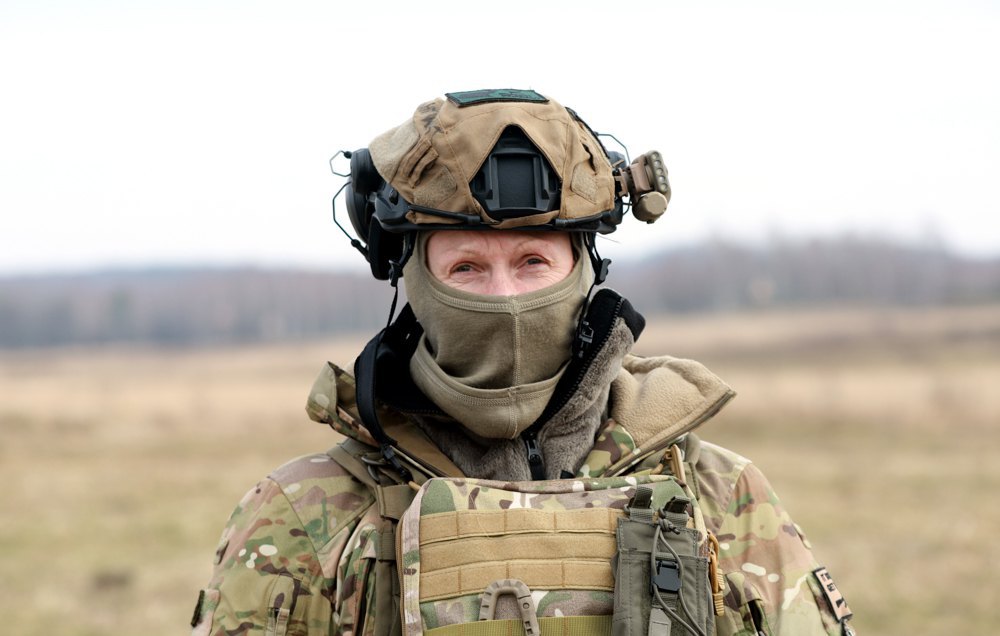
Please tell us about your combat experience. What will you remember the most?
I spent most of the last year in Donbass. It was quite a different war from the one the guys in Kharkiv, Kherson had, who were on the offensive. We were mostly in defensive ops. I think, one of the villages we were operating in has got a dubious honor of being the most shelled place in the world. There was a lot of artillery. Look, any story when we saved one of our guys is a sad story, because he got hit in the first place. It's never my favorite thing to talk about. We definitely had some lucky escapes – guys trapped in buildings, buildings on fire, basement collapsed... I don't know where to start. There are too many scenarios.
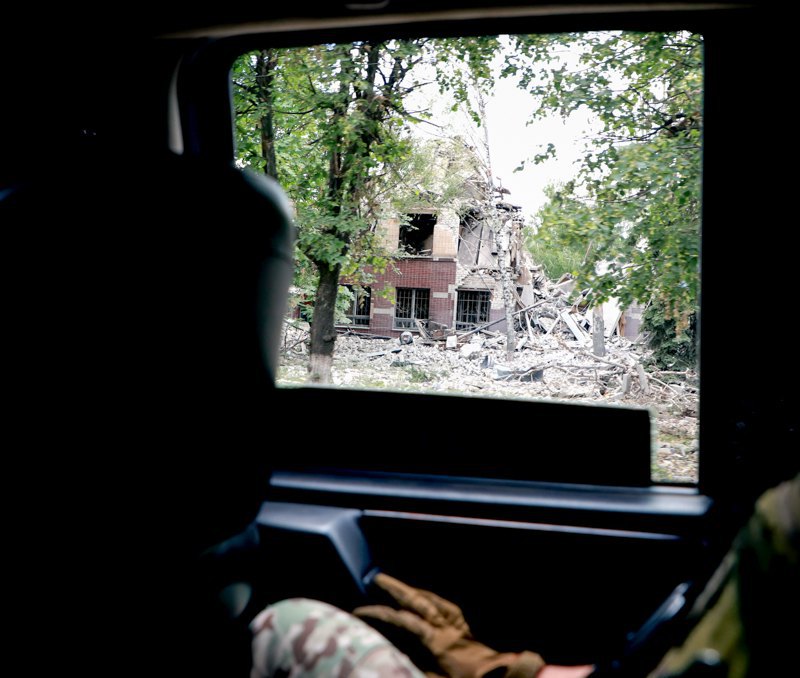
Did you have a chance to provide medical care to civilians as well?
Yes, a few civilians here and there... But often the areas where we are operating are almost evacuated of civilians, or, unfortunately, people have died with the onslaught of the artillery. Also, our company provided a lot of medical assistance to other units, who didn’t have their own medic. So, we were mostly busy with that. But yes, some civilians, even without injuries, but just the fact they couldn’t get out to see a doctor about certain things, like skin problems, or diabetes, or something like that.
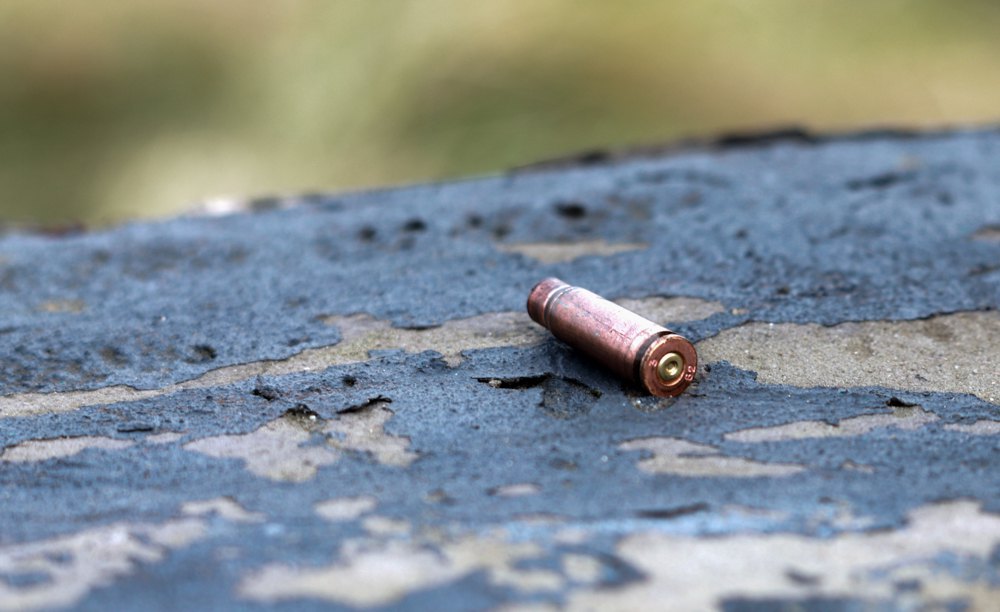
Combat medics often joke that the best medical assistance in combat is to suppress the enemy with fire. What do you think about this based on your experience?
Yes, sure. I always tell all the medics I expect them to be soldiers first, and medics second. You can't be on the battlefield if you don’t know how to fight. There was a couple of places where we had to fight our way out of things, or do all-round defense, when nobody was sure what was happening. There was this place near Bakhmut, where, unfortunately, we were forced to retreat from, fighting our way out of those positions. Completely overwhelming numbers of Russians, exactly as everyone sees on the TV. You know, dozens of guys for every our guy, and so much overwhelming firepower. So, we were pretty lucky to fight our way out.
What brings you energy to do this extremely difficult and dangerous job?
I think, it's kind of collective energy of the group, everyone keeps everyone else going. Everybody would rather be somewhere else doing something else, but it's just not possible at the moment – until the victory. So, you just have your mates motivating you to keep going.
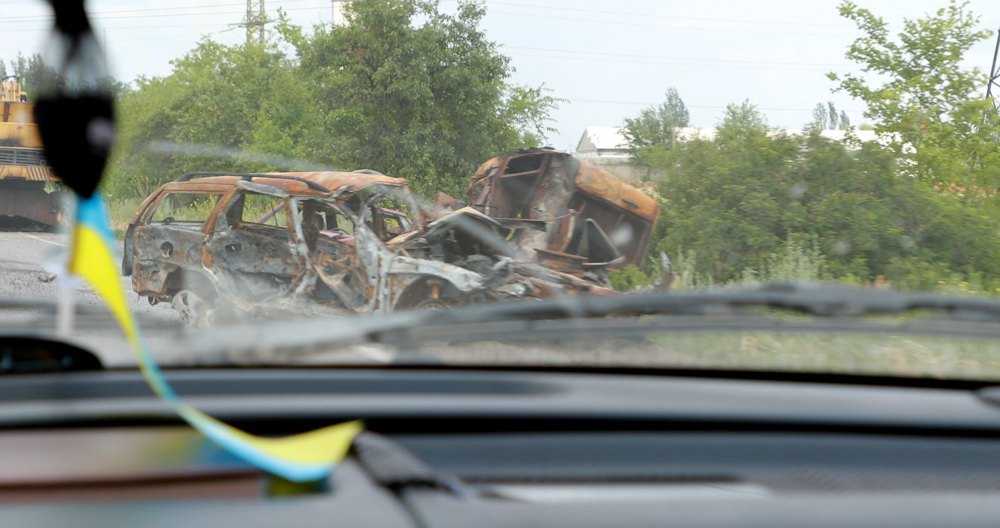
How, in your opinion, the situation will develop, and what will be the end of this war?
It's a pretty big question. I think, for the freedom of the world, for the good of everyone, it has to end with Ukrainian victory. We can't allow bully to use force to take what they want, while the rest of the world stands and looks on. In my opinion, and that of many others, the rest of the world is fortunate to have Ukraine fighting its war for it. Because it's not just about Ukraine. I think, we all know that.
What are your plans for after the war?
I'm going to sail my yacht around the world and sit on the beach somewhere. Or go to the mountains, which always feel like home…
Translated by Oleksandr Goral







